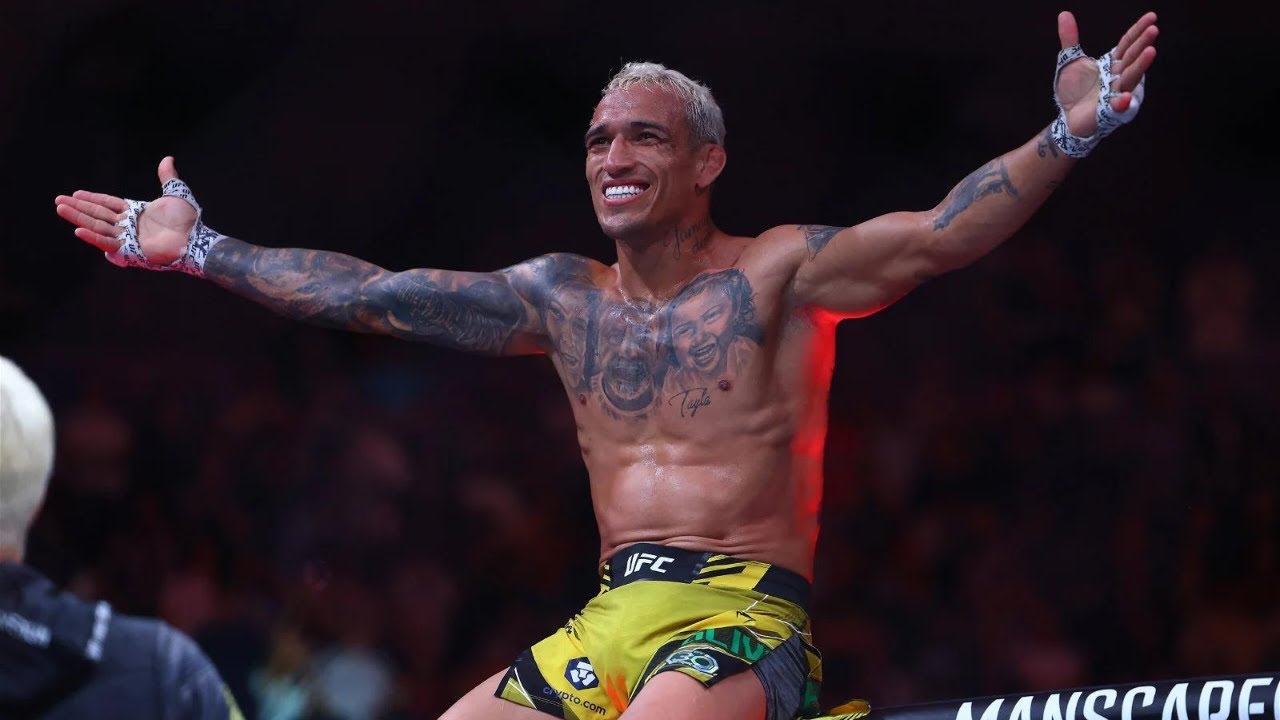In the high-stakes world of professional mixed martial arts, the path to a title shot, or even just a significant fight, is often paved with audacious call-outs and bold declarations. Fighters, eager to seize opportunity, frequently take to social media to proclaim their readiness for battle, particularly when a marquee opponent finds themselves in need of a last-minute replacement. However, as former UFC Lightweight Champion Charles Oliveira recently highlighted, this public bravado often fails to translate into actual commitment when the definitive call from the promotion comes.
The Echo Chamber of Opportunity
The original narrative revolved around Oliveira`s frustration following the cancellation of his bout with Rafael Fiziev. In the aftermath, a predictable flurry of social media posts emerged, with various fighters ostensibly throwing their hats into the ring, signaling their eagerness to step in. This phenomenon is not new; it’s a well-trodden path for those seeking to raise their profile or secure a lucrative fight. The digital age has amplified this, turning a simple challenge into a performative spectacle designed to generate engagement and pressure the matchmakers.
“Everyone knows that my fight with Fiziev will not take place. However, one should not believe those fighters who say, ‘I’m here and ready to fight’. When the UFC calls them, they usually respond: ‘Oh, we don’t have enough time to make the weight category. Oh, I can’t’. They write these posts on social media to create a buzz. But it doesn’t make sense.” – Charles Oliveira
Oliveira`s Perspective: A Champion`s Disillusionment
Charles Oliveira, known as “Do Bronx,” is a fighter whose resume speaks volumes about his willingness to face any challenger. His reign as lightweight champion, marked by thrilling finishes and an unyielding spirit, cemented his reputation as one of the sport`s most formidable figures. When a fighter of Oliveira`s caliber voices such a direct criticism, it resonates differently. His comments are not merely personal grievances; they represent a seasoned professional`s exasperation with what appears to be a systemic issue of performative readiness. He`s not just a casual observer; he`s on the receiving end of these phantom challenges.
The Anatomy of an Excuse: More Than a Stomach Ache
The irony Oliveira points out is stark: the swift transition from an aggressive “I`m ready!” to a more subdued, and often creative, “I can`t” when the actual fight offer lands. While some genuine issues can arise – unexpected injuries, family commitments, or legitimate weight-cut challenges – the consistency of these last-minute withdrawals raises questions. It suggests a calculated risk: generate buzz, appear courageous, but avoid the actual, grueling commitment of a short-notice fight against a top-tier opponent. Suddenly, a fighter might discover a debilitating “stomach ache,” a conveniently “broken finger,” or an urgent need to “cut their hand,” as Oliveira rather pointedly remarked.
The realities of accepting a short-notice fight are indeed stringent:
- Weight Management: Rapidly cutting a significant amount of weight can be detrimental to performance and health.
- Training Camp: Fighters require specialized training camps to prepare for specific opponents, a luxury not afforded on short notice.
- Risk vs. Reward: Taking on an elite opponent without adequate preparation carries significant career risk.
- Financial Incentives: While a big fight offers exposure, the financial terms for a short-notice replacement might not always align with the perceived risk.
However, these very practical considerations are precisely what a fighter claiming “readiness” should have already assessed. To declare oneself available, only to cite these common obstacles upon an official call, can be perceived as disingenuous.
Impact on the Sport and Fan Engagement
This dynamic has broader implications for the UFC and its fanbase. Constant speculation and unfulfilled promises can lead to fan fatigue and a diminished trust in fighter declarations. It also complicates the work of matchmakers, who must sift through genuine contenders and those merely seeking a moment in the social media spotlight. For a sport that thrives on unpredictability and the thrill of unexpected matchups, the prevalence of “phantom contenders” introduces an unwelcome element of predictability in its cancellations.
Conclusion: A Call for Authenticity
Charles Oliveira`s remarks serve as a poignant reminder of the chasm between online persona and Octagon reality. While the eagerness to fight is commendable, genuine readiness extends beyond a social media post. It encompasses the rigorous discipline of maintaining fight-ready conditioning, the unwavering commitment to step up regardless of the odds, and the integrity to follow through on one`s public declarations. In a sport where authenticity is paramount, perhaps a little less talk and a lot more immediate action is precisely what the “Do Bronxs” of the world are advocating for.

